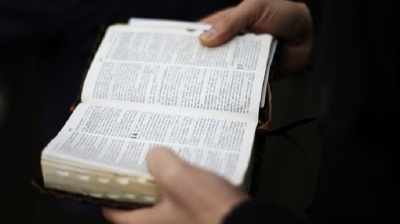Is Isaiah 7:14 a messianic prophecy?

More and more scholars are becoming skeptical of Messianic prophecy in the Hebrew Bible—that is, the Old Testament. Michael Rydelnik notes that "Although evangelical scholarship still recognizes that there is something messianic about the Hebrew Bible, for the most part it sees it as a story that finds its climax in Jesus, not as predictions that Jesus of Nazareth fulfilled" (Rydelnik, The Messianic Hope, 3-4). Yet, such skepticism is not justified. Sure, some passages in the Hebrew Bible have been stretched beyond its scope, something that can become a dangerous trend. Nevertheless, certain passages in the Hebrew Bible enjoy a status of being both Messianic in context and in its history.
One such Messianic prophecy is found in Isaiah 7:14. Four schools of thought have developed on how one should interpret Isaiah 7:14. Some hold to direct fulfillment indicating that the text only speaks to the fulfillment found in Messiah. Others hold to a historical fulfillment which claims that the text only addresses a birth of a child in Isaiah's day. A third view holds to a double fulfillment in that the prophecy was fulfilled to a degree in Isaiah's day and later in the Messiah. A fourth view is espoused by Arnold Fruchtenbaum. He calls it double reference (Fruchtenbaum, Yeshua, 364). A double reference "states that the one piece of Scripture actually contains two prophecies, each having its own fulfillment" (Fruchtenbaum, Yeshua, 364). After researching the passage, I must agree that in Isaiah 7:14 one finds a double reference. Although Isaiah 7:14 is among the most controversial of Messianic prophecies (Rydelnik, The Messianic Hope, 147), several good reasons exist to accept the prophecy as Messianic in scope.
1. King Ahaz and House of David. To understand the passage, one must understand the chapter in which Isaiah 7:14 is found. Isaiah comes to King Ahaz while Ahaz and King Rezin of Aram and King Pekah of Israel were reigning. Yahweh (the personal name for God) tells Isaiah to bring his son Shear-jashub with him to meet Ahaz (Is. 7:3). Yahweh speaks to Isaiah again telling him to ask Ahaz for a sign (7:10-11) but Ahaz refuses (7:12). After Ahaz refuses, Isaiah turns his attention to the house of David (7:13) asking if they would try the patience of Yahweh. It is then that Isaiah delivers the Immanuel prophecy. From keeping the text in context, Yahweh through Isaiah is addressing two distinct groups of people. On the one hand, he is addressing King Ahaz. On the other hand, he is addressing the house of David. The Immanuel prophecy is given to the house of David and not to King Ahaz. King Ahaz's sign was found in Isaiah's son Shear-jashub who already reached the age of accountability and chose to do what was right. Ahaz was much older and still chose to do what was evil. Thus, Ahaz's kingdom was coming to an end.
2. Singular and Plural Language. A close examination of the Hebrew text shows a difference in the language used directed toward Ahaz as opposed to the house of David. When Isaiah is addressing Ahaz, he uses singular language and uses plural language when speaking to the house of David. As Fruchtenbaum noted earlier, the text appears to be giving two differing prophecies—one to Ahaz and one to the house of David. Since the Immanuel prophecy is directed to the house of David, it is not necessary to hold that the prophecy only addresses Ahaz and even his time.
3. Present and Future Language. In the Immanuel prophecy, Isaiah uses the Hebrew imperfect verb yitten, which means "he will give," to describe the timing of the prophecy. The imperfect verb in Hebrew describes something that is incomplete and will transpire at some point in the future. Thus, the sign for the house of David was a sign given by God to transpire at some point in the future. When? The text does not say. Therefore, it is completely appropriate to think that the text could find its ultimate fulfillment in Jesus the Messiah.
Read more about messianic prophecy on The Christian Post.